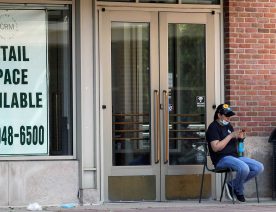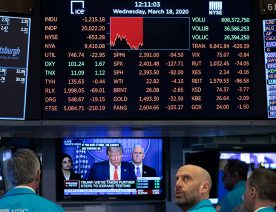
August 25, 2020
The public’s assessment of the U.S. economy, which declined at the start of the coronavirus outbreak, remains low. But even as many have endured unemployment, pay cuts, and financial insecurity, Americans are about as likely as they were before the coronavirus outbreak to describe their personal financial situation positively.
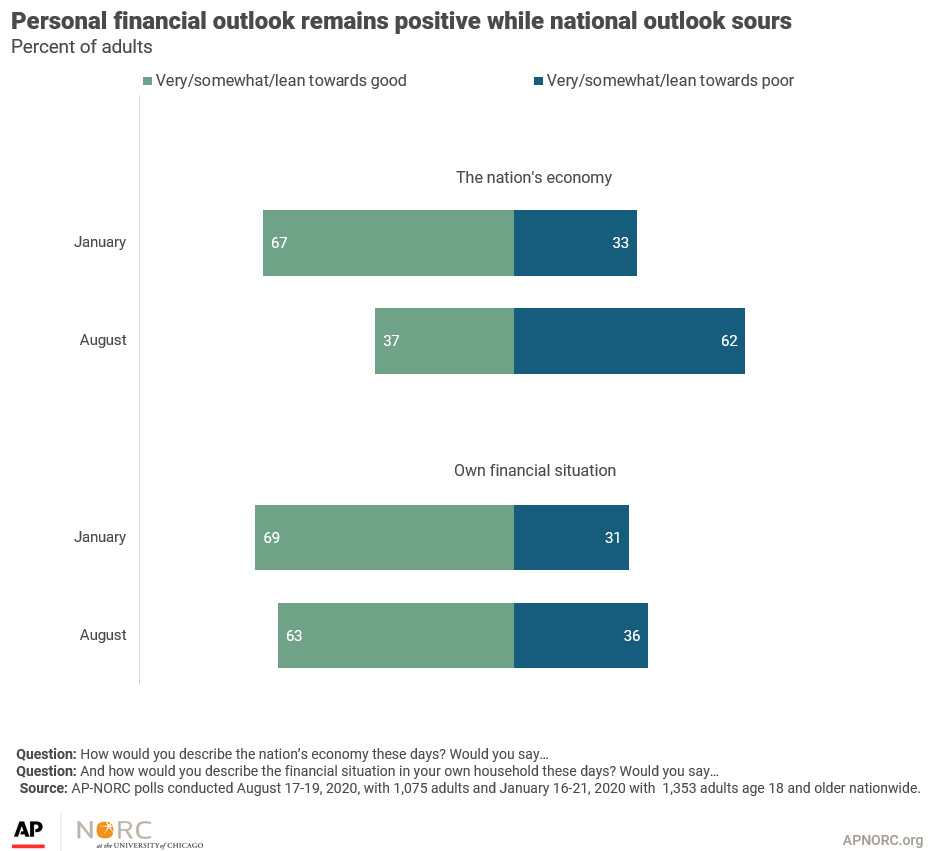
Sixty-three percent of Republicans describe the national economy as good; 80% of Democrats say its condition is poor. Partisan differences decrease when it comes to personal finances: 79% of Republicans say their own financial situation is good, as do 56% of Democrats.
For many Americans, the pandemic means spending less, saving more, or paying down existing debt. Two-thirds say they are spending less because of the coronavirus outbreak. Fifty-two percent say they’ve been able to save more than usual, pay down debt faster, or both.
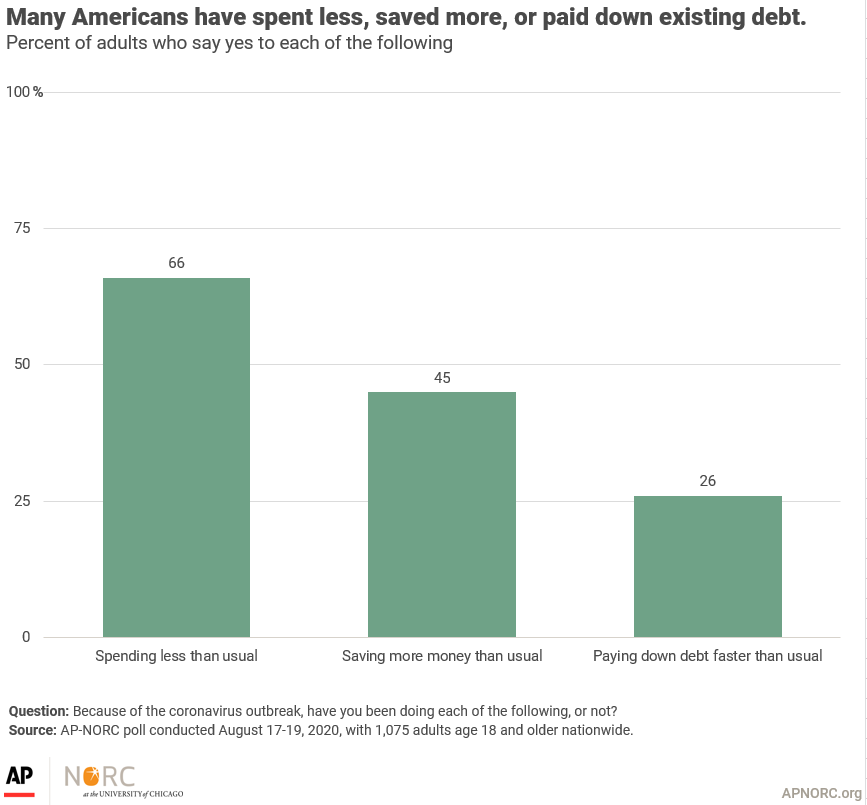
Still, 49% say COVID-19 has affected their household’s paychecks, whether by a layoff, reduced salary, or a cut in hours. Seventeen percent have personally received unemployment benefits, and 26% have been unable to make a rent or mortgage payment or pay some other type of bill. Fifty-two percent of those who have lost some source of income report saving more or paying down debt.
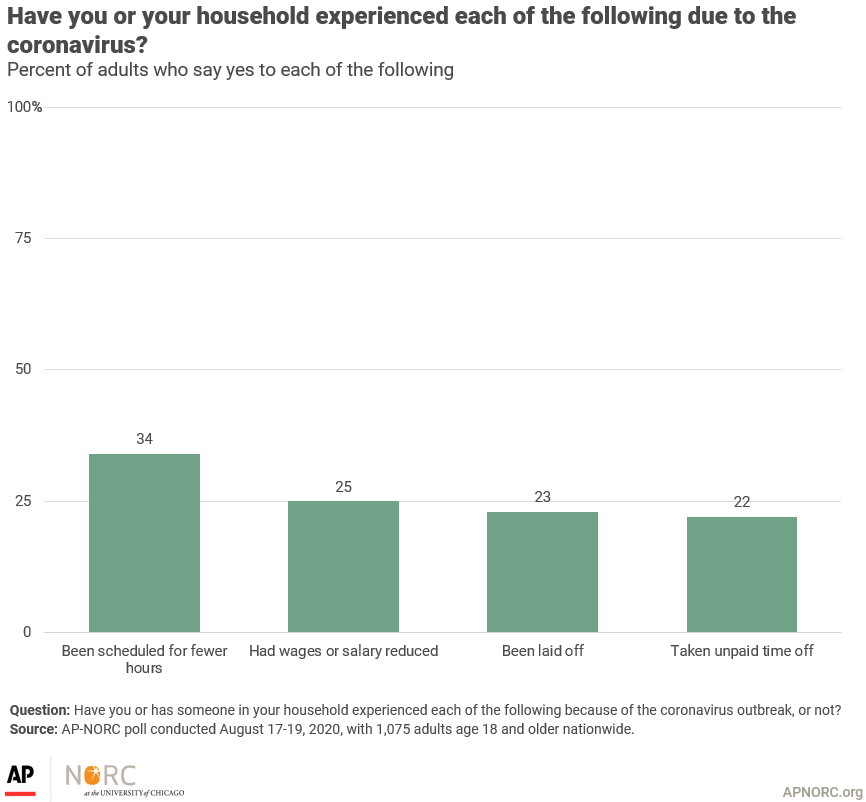
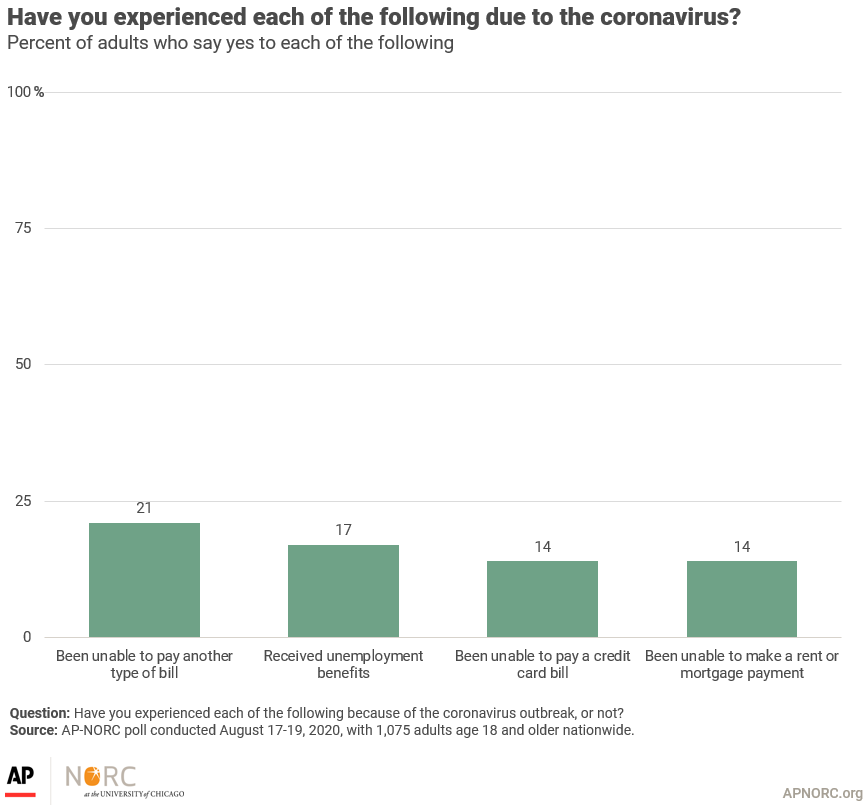
The nationwide poll was conducted August 17-19, 2020 using the AmeriSpeak® Panel, the probability-based panel of NORC at the University of Chicago. Online and telephone interviews using landlines and cell phones were conducted with 1,075 adults. The margin of sampling error is +/- 4.1 percentage points.
Suggested Citation: AP-NORC Center for Public Affairs Research. (August, 2020). “Economic Consequences of the Coronavirus Outbreak.” [apnorc.org/economic-consequences-of-the-coronavirus-outbreak]






